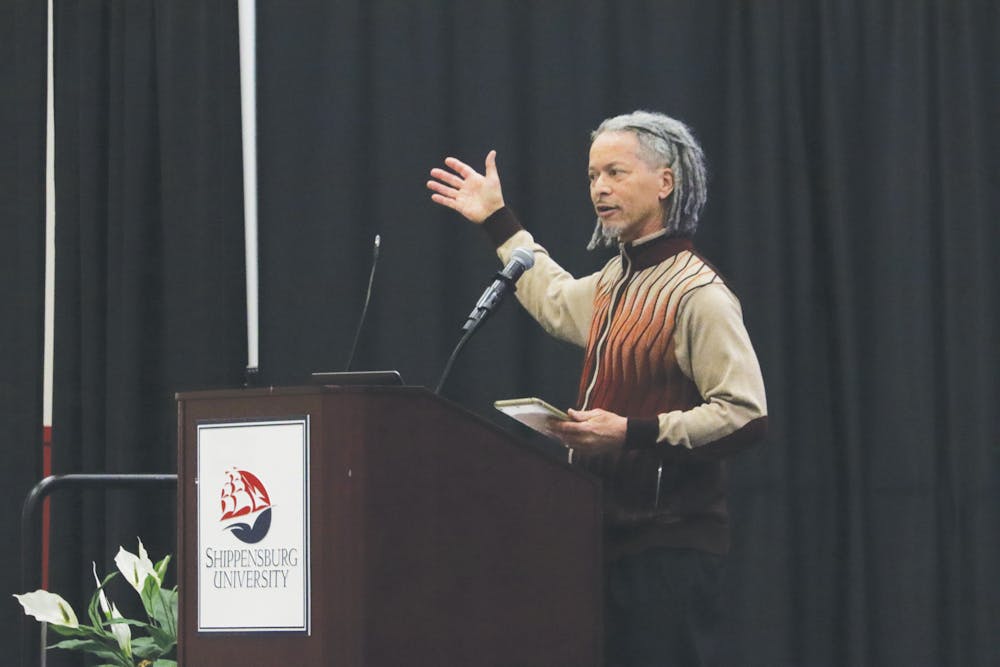Gettysburg College professor Scott Hancock, visited Shippensburg University to give an interactive presentation about the national theme of Black History Month on Wednesday evening in the CUB MPR.
During the presentation, Hancock explored the impact of slavery on America and the imbalance of appreciation for Black labor and work throughout America’s history.
He introduced and emphasized the word “Sankofa,” which means “to go back and fetch what you forgot.”
In the context of Black history, Sankofa refers to reciting one’s family history dating back up to seven years.
“History matters because it provides us with clues and possibilities of solutions for our present and future challenges,” Hancock said.
The audience was encouraged to participate throughout the evening. Many responded to Hancock’s slides and volunteered to share stories about the tough jobs their families have experienced. He used these stories to drive his points further and make it easier for the audience to connect with his message.
Hancock also taught about the injustice African Americans faced in America and the workforce despite being so beneficial to the country.
According to Hancock, enslaved African Americans accounted for about 20% to 24% of the American economic growth in the 20 years before the Civil War.
He continued to explain the struggle freed African Americans faced when exercising their citizenship, including seeking the ownership of land they worked on.
The presentation had an overarching theme of realizing the impact of Black workers in America and showing the proper appreciation.
When asked about the importance of the presentation and Black History Month as a whole, Hancock emphasized education.
“My hope is always that it’s part of a longer process of people thinking through things and helps them think critically and analytically,” he said.
“We have to figure out how to make connections among different groups to start building effective alliances.”



The Slate welcomes thoughtful discussion on all of our stories, but please keep comments civil and on-topic. Read our full guidelines here.